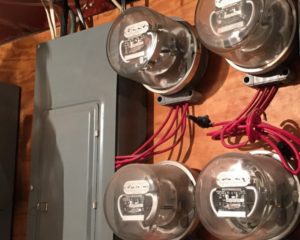
Reader Question: We will looking to buy a home in the near future. When thinking about hiring a home inspector, how do we pick a quality one? Randy and Mary Ann G.
Monty’s Answer: Now is a good time to be thinking about hiring a home inspector. Because a home purchase or sale is likely your largest single financial transaction, a proper inspection helps prevent expensive replacements and repairs. Problems discovered, or overlooked, in a home’s inspection can cost thousands or tens of thousands of dollars to repair or replace. There is no second chance, so the inspection must be right the first time.
Condition influences value
One of the key factors to a home’s value is its condition, which translates directly to the price of the home. If a home buyer has to invest thousands, or tens of thousands of dollars, to bring the home back to top condition, they will not pay a high price. If the home sellers keep their homes in top condition while they own it, buyers pay more because there is no added expense or time spent getting it back in shape.
When an inspection takes place
Here are several factors that have a bearing on how an inspection plays out:
- The product. The age and size of the home, quality of construction, artistry, the extent of finishing, the location, quality of materials, design, prior maintenance and repairs and the homesite can cause some homes to be at higher risk for errors and omissions.
- The weather conditions. When temperature reduces heating or cooling operational efficiencies or a roof is snow-covered, it restricts the inspector’s observational power. For example, one of the best times to inspect a home is soon after a heavy rain.
- The staging. The inspector is not required to move boxes, roll-up large area rugs, wait for keys for a locked door to be discovered, or remove paneling or sheetrock. A vacant home with easy access to all inspection points and no shrubbery eliminates reporting exceptions and reduces the risk of undetected defects or repair items. A hoarder’s house may be one of the most rigorous inspections.
Pre-screen three candidates
Go proactive with friends, co-workers, or relatives that have bought or sold homes in the past year. Contact them and ask them about their experience with their inspection. Your goal is to identify at least three inspectors that received high marks from people you know and trust. Press them a bit. If they say, “They did a great job,” ask them to give you an example of what made it so great. You perform due diligence on the top three.
Most inspectors have a web presence. There you will find an email address, a sample inspection report, their qualifications and affiliations with trade associations. While an attractive, well-organized website is helpful, it does not necessarily translate to being a good inspector. Email these questions below even if the answers are on the website as they could be stale.
Here are ten starter questions
- What sets you apart from other home inspectors?
- Did an earlier career provide you with helpful inspection experience?
- If you discover issues that require repair or replacement, do you recommend vendors?
- If your recommendations are hired, do you benefit financially?
- Do you carry Errors and Omissions insurance? What does it cover?
- Will you email a redacted copy of a recent home inspection?
- Do you perform listing or pre-sale inspections? If so, do you re-inspect for a buyer at the time of a sale?
- Can you share a story about an inspection where your experience and observation skills uncovered a problem that was not visible?
- Who at your company performs the physical inspection?
- Do you physically access the roof to check the various inspection points? If the roof is too steep, or snow covered, how do you inspect it?
Their emailed answers complete the due diligence you need to decide on your inspector. Do this early in the process so you are not rushed because of a contract deadline.
Some final tips
Always attend your inspection. By interacting with the inspector on site, you learn more about the house and any issues simultaneously. You will ask follow-up questions you could not have anticipated not being there. Finally, read the inspection report. There may be no issues requiring repair or replacement, but there may be notes about life expectancy, future maintenance or watch warnings.


